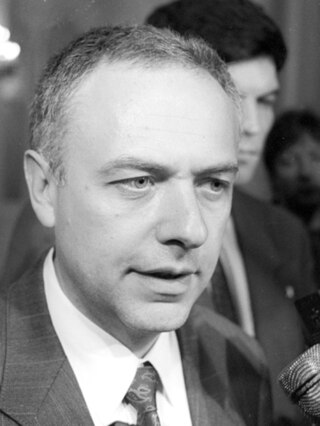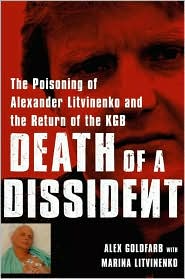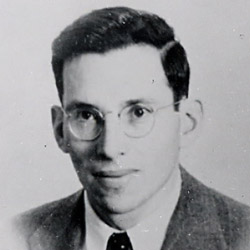
The Federal Security Service of the Russian Federation is the principal security agency of Russia and the main successor agency to the Soviet Union's KGB; its immediate predecessor was the Federal Counterintelligence Service (FSK) which was reorganized into the FSB in 1995. The three major structural successor components of the former KGB that remain administratively independent of the FSB are the Foreign Intelligence Service (SVR), the Federal Protective Service (FSO), and the Main Directorate of Special Programs of the President of the Russian Federation (GUSP).

Samir Saleh Abdullah al-Suwailim, commonly known as Ibn al-Khattab or as Emir Khattab, was a Saudi pan-Islamic jihadist. Though he fought in many conflicts, he is best known for his involvement in the First Chechen War and the Second Chechen War, which he participated in after moving to Chechnya at the invitation of the Akhmadov brothers.

In September 1999, a series of explosions hit four apartment blocks in the Russian cities of Buynaksk, Moscow, and Volgodonsk, killing more than 300, injuring more than 1,000, and spreading a wave of fear across the country. The bombings, together with the Invasion of Dagestan, triggered the Second Chechen War. The handling of the crisis by Vladimir Putin, who was prime minister at the time, boosted his popularity greatly and helped him attain the presidency within a few months.

Yevgeny Maksimovich Primakov was a Russian politician and diplomat who served as Prime Minister of Russia from 1998 to 1999. During his long career, he also served as Foreign Minister, Speaker of the Supreme Soviet of the Soviet Union, and chief of the intelligence service. Primakov was an academician (Arabist) and a member of the Presidium of the Russian Academy of Sciences.

Spetsgruppa "A", also known as Alpha Group, or Alfa, whose official name is Directorate "A" of the FSB Special Purpose Center, is a stand-alone sub-unit of Russia's special forces within the Russian Federal Security Service (FSB). It was created by the Soviet KGB in 1974. Although little is known about the exact nature of its primary directives, it is speculated that the unit is authorised to act under the direct control and sanction of Russia's top political leadership, similar to its sister unit, the Directorate "V" (Vympel), which is officially tasked with protecting Russia's strategic installations, as well as conducting black operations inside and outside Russia. It is also available for extended police duties, for paramilitary operations, and for covert operations, both domestically and internationally.
Russian oligarchs are business oligarchs of the former Soviet republics who rapidly accumulated wealth in the 1990s via the Russian privatisation that followed the dissolution of the Soviet Union. The failing Soviet state left the ownership of state assets contested, which allowed for informal deals with former USSR officials as a means to acquire state property.

Andrei Vladimirovich Kozyrev is a Russian politician who served as the former and the first Minister of Foreign Affairs of the Russian Federation under President Boris Yeltsin, in office for the Russian SFSR from October 1990 and, after the dissolution of the Soviet Union, from 1992 until January 1996 for Russia. In his position, he was credited with developing Russia's foreign policy immediately after the fall of the Soviet Union, although many in Russia have criticized him for being weak and not assertive enough in defending Russian interests in the face of NATO in places such as Republic of Bosnia and Herzegovina and Ba'athist Iraq.

Galina Vasilyevna Starovoitova was a Soviet dissident, Russian politician and ethnographer known for her work to protect ethnic minorities and promote democratic reforms in Russia. She was shot to death in her apartment building in 1998.
Mikhail Ivanovich Trepashkin is a Russian attorney and former Federal Security Service (FSB) colonel who was invited by MP Sergei Kovalev to assist in an independent inquiry of the Russian apartment bombings in September 1999 that followed the Dagestan war and were one of the causes of the Second Chechen War. During his investigation, he was arrested by the FSB and sentenced to four years' imprisonment for "revealing state secrets". His arrest has been criticized by a number of human rights organizations and he has been called a political prisoner.

Gennadiy Nikolayevich Seleznyov was a Russian politician, the Chairman of the State Duma from 1996 to 2003.

The Ministry of Defence of the Russian Federation is the governing body of the Russian Armed Forces. The President of Russia is the Commander-in-Chief of the forces and directs the activity of the ministry. The Minister of Defence exercises day-to-day administrative and operational authority over the forces. The General Staff of the Armed Forces executes the instructions and orders of the president and the defence minister.

Sergei Nikolayevich Yushenkov was a liberal Russian politician. He was assassinated on 17 April 2003, just hours after registering his political party to participate in the December 2003 parliamentary elections.
Terrorism in Russia has a long history starting from the time of the Russian Empire. Terrorism, in the modern sense, means violence against civilians to achieve political or ideological objectives by creating extreme fear.

Blowing Up Russia: Terror from Within is a book written by Alexander Litvinenko and Yuri Felshtinsky. The authors describe the Russian apartment bombings as a false flag operation that was guided by the Russian Federal Security Service to justify the Second Chechen War and bring Vladimir Putin to power. The story was initially printed by Yuri Shchekochikhin in a special issue of Novaya Gazeta in August 2001 and published as a book in 2002. In Russia, the book was prohibited because it divulged state secrets, and it was included in the Federal List of Extremist Materials. However, it was published in more than twenty other countries and translated into twenty languages.

Death of a Dissident: The Poisoning of Alexander Litvinenko and the Return of the KGB is a book written by Alexander Goldfarb and Marina Litvinenko about the life and death of her husband, former FSB officer Alexander Litvinenko who was poisoned by the radioactive element polonium in London in November 2006.

George Abramovich Koval was an American engineer who acted as a Soviet intelligence officer for the Soviet atomic bomb project. Koval's infiltration of the Manhattan Project as a GRU agent reduced the time it took for the Soviet Union to develop nuclear weapons.

Boris Nikolayevich Yeltsin was a Soviet and Russian politician who served as President of Russia from 1991 to 1999. He was a member of the Communist Party of the Soviet Union from 1961 to 1990. He later stood as a political independent, during which time he was viewed as being ideologically aligned with liberalism.

The Minister of Defence of the Russian Federation is the minister responsible for the Russian Armed Forces. Marshal of Aviation Yevgeny Shaposhnikov was the last Minister of Defence of the Soviet Union. General Colonel Konstantin Kobets supported then President of the Russian Soviet Federative Socialist Republic Boris Yeltsin during the August coup of 1991. From 19 August until 9 September 1991, Konstantin Kobets was Defense Minister of the RSFSR, though there was no ministry. This post was then abolished.

Putinism is the social, political, and economic system of Russia formed during the political leadership of Vladimir Putin. It is characterized by the concentration of political and financial powers in the hands of "siloviks", current and former "people with shoulder marks", coming from a total of 22 governmental enforcement agencies, the majority of them being the Federal Security Service (FSB), Ministry of Internal Affairs of Russia, Armed Forces of Russia, and National Guard of Russia. According to Arnold Beichman, "Putinism in the 21st century has become as significant a watchword as Stalinism was in the 20th."















